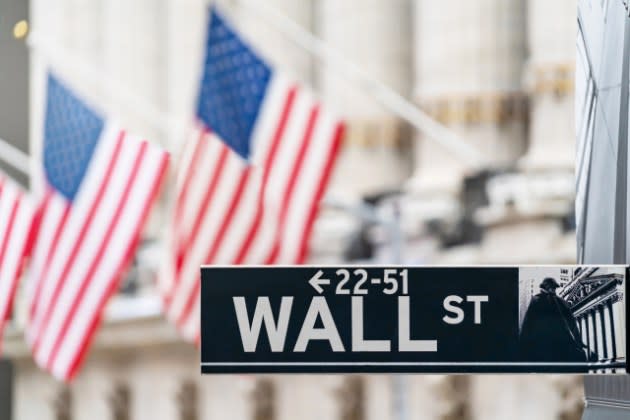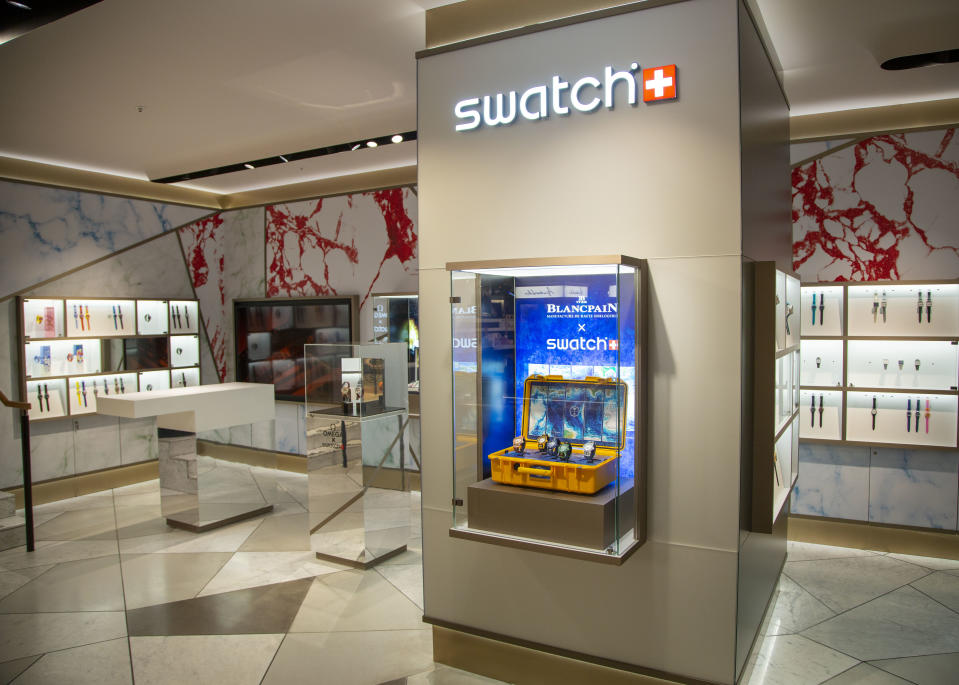Why Tod’s, Superdry and Others Are Deserting the Stock Market and Returning to Private Ownership

LONDON — Few things can match the high that comes from ringing the opening bell to mark a company’s stock market debut — except perhaps the enormous sigh of relief that comes when that company is delisted.
When companies go from public to private they do it quietly — there are no rounds of applause, selfies, videos or staff members shaking giant foam fingers and screaming “woo-hoo.” Owners breathe out, take their time to make changes, and may even look to relist their companies, but only when the time is right.
More from WWD
Tod's Group 2023 Profits More Than Doubled; Response About Tender Offer Expected at End of March
NCT's Jaehyun, Jeno, Doyoung Generated the Highest Media Value During Fashion Month
Now, with a slowdown in consumer demand and inflation and high interest rates squeezing valuations, publicly listed companies ranging from Tod’s to Superdry to Soho House are eyeing the exit door, and looking to return to private ownership.
Whether they need to restructure or raise more money, they’re hoping to make their fixes away from the glare of the public markets.
Amid all the market volatility, the stock exchange “can be a terrible place to live” right now especially for creative brands, family-run firms, or companies that are restructuring,” said Alice Wells, managing director of Lempriere Wells, an investment bank specializing in consumer M&A.
“When the market is unstable, it can be punishing for some companies. You lose access to liquidity and to capital, and it’s just not worth it anymore. This is especially true for creative businesses that need to be thinking for the long term,” Wells added.

According to a recent report from S&P Global, private equity public-to-private deals hit a 16-year high in 2023, chiefly because stock market valuations have been so low. Private market valuations look high by comparison, and companies across a variety of industries have been taking advantage of that disparity to jump out of the public markets and into private equity hands.
Fashion and lifestyle companies, some of which are now trading at a wide gap from the peak levels seen in the past 10 to 15 years, have begun to wonder whether delisting might be their best option. And they’re looking to private equity for help.
Tod’s has already confirmed its intention to delist via a deal with private equity giant L Catterton, while Superdry’s founder and chief executive officer Julian Dunkerton is looking for backers to help him take the troubled high street retailer private. According to the latest stock market filing, he has until March 29 to make an offer or abandon his efforts.
The loss-making Soho House confirmed last month that it’s mulling a “take-private” deal, and has formed a special committee to explore strategic options.
Swatch Group is also in the mix. Luca Solca of Bernstein recently wrote that taking the Swiss giant private would be cofounder, CEO and chairman Nicolas Hayek’s “lifelong dream.”
Late last year, José Neves was said to be in talks to take Farfetch private, but in the end it was too late. Farfetch, which was fast running out of money, was eventually placed into administration, and later sold to Coupang.
Industry sources have suggested that Burberry could be next. They argue that pulling out of the London Stock Exchange would give the company the freedom to restructure without facing the scrutiny of the public markets.

Companies have different reasons for going private.
David Belhassen, founder and managing partner of Neo, a private equity firm that specializes in fashion and lifestyle brands, said that in some cases, such as Tod’s, “the market doesn’t recognize a company’s value for whatever reason — whether that’s fear, or the perception that it’s not doing well.”
“Tod’s has been doing very, very well lately, but the market hasn’t recognized that,” so the owning Della Valle family decided to take matters into their own hands, Belhassen added.
Tod’s revealed earlier this week that fiscal 2023 profits more than doubled to 50 million euros, while sales grew almost 12 percent to 1.12 billion euros.
As reported last month, the Italian group is planning to return to private ownership through a 1.4 billion euro deal with an L Catterton affiliate backed by LVMH Moët Hennessy Louis Vuitton.
Tod’s move didn’t surprise analysts. The company had already tried, and failed, to go private two years ago, and is now determined to chart a course beyond the stock market’s borders.
Bernstein’s Solca said that in a “polarizing and consolidating luxury industry, it makes sense for Tod’s to become part of a much bigger galaxy” by teaming with an LVMH-backed affiliate.
Gabriel Debach, market analyst at eToro, believes a delisting will allow Tod’s more freedom and flexibility to enhance all of the brands in its stable, which also include Fay and Hogan. In addition, he said, private ownership will give the company more operational autonomy, and allow it to pursue medium- and long-term objectives “beyond the short-term scrutiny of the stock market.”
Like Solca, Debach views Tod’s determination to delist as a reflection of the luxury market’s current dynamics, where bigger, multibrand groups, such as LVMH, Kering and Compagnie Financière Richemont dominate.
“Growing competition and the trend toward an increasing concentration could make it difficult for a company such as Tod’s, with a market capitalization of about 1.3 billion euros, to compete with the major conglomerates,” Debach added.

Swatch Group, owner of watch brands including Omega and Breguet as well as the core Swatch label, could well be next.
In a report published last month, Solca said the shares are trading at “rock bottom multiples” and described the company as “the epitome of the undermanaged business with high potential, and therefore a very appetizing target for the industry consolidator LVMH.”
The watchmaker’s shares are down about 35 percent over the past year, giving it an enterprise value of 8.8 billion Swiss francs, or about $10 billion, factoring in the company’s debt.
That has Swatch trading at 1.1-times revenues and 5.6-times earnings before interest, taxes, depreciation and amortization, according to S&P Capital IQ. That pales in comparison to luxury giant LVMH Moët Hennessy Louis Vuitton, which is trading at 5.3-times revenues and 16.2-times EBITDA.
Solca and his team ran a “back of the envelope scenario,” and found that going private would also give Swatch the opportunity “to drive down any incurred debt rather rapidly.”
The Bernstein report also highlighted Swatch as a reluctant stock market player with a disdain for investors, noting that a change of ownership would transform the company’s prospects. If things remain as they are, “one could see the Swatch Group share price go nowhere, especially if Chinese middle class demand continued to be lackluster,” the report said.
Another hypothetical case is Burberry. Although analysts aren’t speculating, or crunching the numbers, industry sources have told WWD that selling to private equity and delisting is a possibility.
It would certainly make life easier for management, which has been engineering a strategy shift in a perfect storm of market conditions, including a normalization in luxury demand, and more cautious spending by Chinese consumers.
In January, Burberry told the markets that adjusted operating profit for the 2024 financial year would land somewhere between 410 million pounds and 460 million pounds, below previously stated guidance.
A few months earlier, Burberry had already warned the markets that full-year profits would be lower due to the slowdown in demand for luxury goods worldwide.

Despite all the challenges, CEO Jonathan Akeroyd said he was confident that Burberry could make all the necessary changes and hit its 4 billion pounds revenue goal in the medium term.
Akeroyd acknowledged the wider economic backdrop is making the task more challenging.
“Clearly luxury demand has slowed, but we are still in the very early stages” of the repositioning, he said following the Christmas trading update in January. “It’s very early days, and we have a long way to go. We’re focused on execution, and we’re very confident in our strategy.”
Burberry, which has a market capitalization of 4.54 billion pounds, has given no indication that it plans to delist. The company declined to comment for this story.
An industry source with knowledge of Burberry said there is nothing officially happening at the moment with regard to a take-private deal.
“Bankers are pitching the idea, but there is no mandate or process in place, and it would be a very tough deal to get done,” the source said, adding that it would take billions of pounds of equity and a consortium of sponsors, rather than a single one, to get any deal over the line.
“While not impossible, it’s long putt to be sure,” the person said.
The clock is ticking — for everyone — as it’s only a matter of time before stock markets begin to stabilize and luxury share prices bounce back.
Shares in the sector are already showing signs of life. Since Jan. 1 Richemont shares are up by 29 percent; Moncler Group by 20 percent; LVMH Moët Hennessy Louis Vuitton by 17 percent, and Kering by 5 percent, although the big banks have warned investors not to get too excited yet.
Neo’s Belhassen believes there is only a small window for brands to get delistings done before valuations rise further.
Belhassen said that some companies should probably have made the move six months ago “because the markets were even more difficult, so it’s kind of the last chance right now,” he said, adding that inflation is coming down; interest rates might drop soon, and China will come back at some point.
“Of course, there are no guarantees, but the feeling is that things are coming back, so it’s best to do it now. Otherwise in six months it’s going to be too expensive,” Belhassen said.

He’s not the only one anticipating the return to a more bullish market.
In a recent report, EY said that global IPO activity could rebound in the second half, following a lackluster 2023, which saw a 33 percent decline, year-on-year, in funds raised.
“Although we may not see a rebound in IPO activity in 2024, there are reasons to be positive,” said Scott McCubbin, EY’s IPO leader for the UK & Ireland.
McCubbin believes the fundamentals of the London Stock Exchange in particular remain strong, “and pent-up demand for IPOs suggests we are likely to see an upturn in the market in the second half of [2024] as economic challenges continue to ease,” pointing to better days ahead.
– with contributions from Evan Clark, New York, and Miles Socha, Paris
Best of WWD


